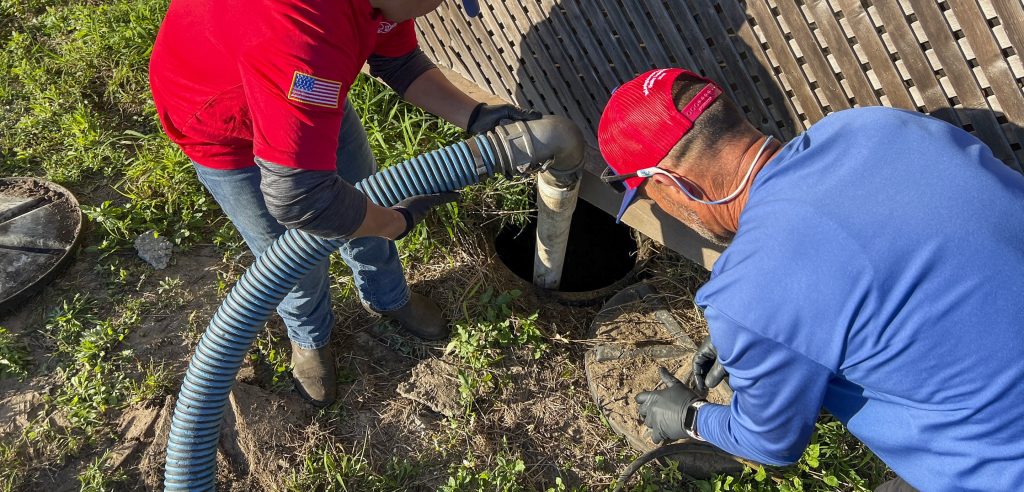
A septic tank can be one of the most useful yet silent partners you have in your household. It manages all your wastewater, and when it’s working properly, it’s almost easy to forget it’s there. But, when it’s time for maintenance or there’s an issue, your septic system doesn’t stay quiet for long. Ignoring signs that your septic tank needs to be pumped can lead you down a messy and complicated road with lots of expensive problems. But there is good news! If you know what to look for when your septic tank needs to be pumped, you can take action and avoid even bigger issues.
Here are five key signs your septic tank likely needs pumping & what to do about it:
You have constant, persistent plumbing issues.
If your sinks, bathtubs, or showers are draining slowly even after unclogging them, it can often be a sign that your septic tank is nearing capacity. If you also notice strange bubbling or gurgling noises when flushing toilets or using sinks, it may indicate restricted flow due to a full tank. And last, if you have wastewater coming back up into your toilets, showers, or tubs, it may mean your septic system is overloaded. If you notice any of these signs, it’s best to call a septic professional and have your system checked. It is likely you will need your septic tank pumped.
You smell foul odors around the drain field or septic tank.
Unpleasant smells around your septic tank can indicate the tank is full and needs to be pumped. When the tank is too full, gases that are usually contained can escape through the ground or plumbing vents. These odors indicate that the waste isn’t being processed properly. Keep your tank at optimal levels with regular inspections and pumping. Avoid dumping grease or harsh chemicals down your drains, as they can disrupt the bacteria that break down waste.
Your grass is extra lush.
While it may seem like healthy growth, an especially green or fast-growing patch of grass above your septic system can be a sign of trouble. If the lawn in your drain field looks exceptionally lush, the tank may be near overflowing. This is because overflowing wastewater adds excess nutrients to the soil, essentially fertilizing the grass unnaturally. If this happens, you will need to schedule an appointment with your septic services provider to check your system for a backup. As a tip, don’t plant trees or shrubs near your drain field, since roots can damage the pipes. Also remember to keep the area clear and perform routine maintenance.
Water is pooling in your yard.
If you notice water pooling or soggy areas around your septic tank or drain field, your system might be oversaturated. When a septic tank overflows, excess liquid rises to the surface of your yard rather than being absorbed underground. Not only is this harmful for the performance of your septic system, but it can also pose a health hazard to you and your family. Regular pumping and tank monitoring can help prevent this kind of overflow.
It’s been more than 3-5 years since your last pumping.
Even if you haven’t seen any dramatic signs yet, time alone can signal the need for a pump-out. Solids build up in the tank over time and eventually reduce your system’s efficiency and capacity. Waiting too long increases the risk of backups and system damage. At Quality Septic Inc., we suggest you mark your calendar or set reminders to pump your tank every 3-5 years, or more frequently if you have a large family or heavy water usage.
We get it – your septic system is out of sight, and it can be easy to keep it out of mind. Take it from us, regular pumping and inspections are your best defense against expensive repairs and septic disasters. By keeping an eye on these five signs, and having a trusted septic services provider on standby, you’ll be able to respond quickly and reasonably.
We’ve been helping Florida homeowners for over 30 years when it comes to septic systems, and we take pride in being the first call our community makes when trouble hits. Don’t panic the next time you need help with your septic system – call Quality Septic Inc. today at (813) 945-7552 to schedule septic service or maintenance.
